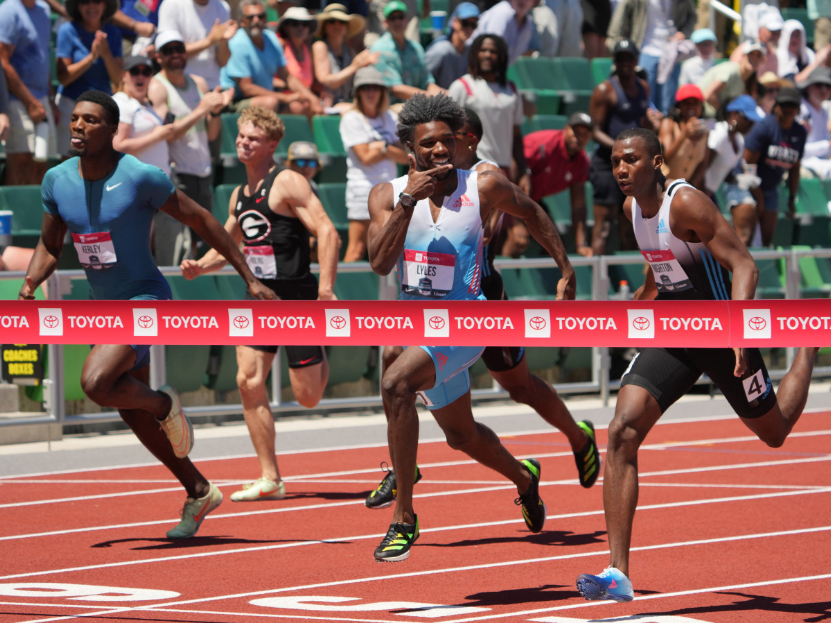The Effects of Competition
In the thrilling atmosphere of sports, competition is an integral component of the reason athletes love showing up on the field, court, or track. It is a natural part of sports that holds a variety of effects that can be both positive and negative for an athlete. With a healthy approach to competition, athletes can work to build confidence, perfect their skills, and develop their performance. This article will delve into the effects of competition on athletes, including both its pros and cons in mental and physical aspects.
Competition Can Increase Motivation
Being competitive can be defined as having the “will to win” or “to strive”, and having the desire to push yourself to be the best athlete possible. Competition against teammates and opponents allows athletes to sharpen their skills through experience. It serves as motivation for an athlete to become better and work harder, driven by the challenge posed by other athletes. For example, if a baseball player on JV was aiming to make varsity at the beginning of the year, they would have competition from other baseball players also attempting to make it on the roster. Through this competitive process, the players would all improve their game by trying to be better players than the others and make the varsity team. Without competition, athletes would not be able to have as much motivation and drive to become better at their sport.
Competition Can Bring Recognition
Recognition is a drastic effect of having competition among athletes, as achievements against athletes set their reputation and recognition apart from others. The competitiveness that athletes bring against others allows them to reach levels of proficiency that would have otherwise not been possible. A prominent example of this would be Lionel Messi and Cristiano Ronaldo, both extremely talented and seen as the best football players in the history of their sport. However, Lionel Messi won the FIFA World Cup championship in 2022, causing a majority of fans to claim that Messi is a better player than Ronaldo. Both Lionel Messi and Cristiano Ronaldo are legendary players in the football world, but opinions are always subjective in preference over players. The World Cup championship does not necessarily make Messi the better athlete, but it undeniably adds significant recognition to his already impressive list of accomplishments.
Healthy Competition Enhances Growth
The concept of competition is also to "Never back down, never concede." This principle underscores the importance of maintaining composure and perseverance in the face of challenges, viewing them as opportunities to enhance and refine skills. Embracing competition from teammates is crucial, as mutual challenges foster growth for individuals, ultimately strengthening each other as athletes. Furthermore, competition also offers entertainment and excitement for spectators and athletes. Witnessing athletes who compete against each other can bring thrill and inspiration, causing unity among individuals who share a common passion.
Cons of Unhealthy Competition
Despite its plethora of beneficial effects, competition also has certain drawbacks that could be negatively affect an athlete. These include pressure, overemphasis on winning, overtraining, and resorting to undesirable methods such as cheating.
Pressure - Competition can unfortunately cause an excessive amount of pressure on athletes. They might feel overwhelmed by the pressure of wanting to be better than other athletes, causing an unhealthy amount of stress. This stress can lead to anxiety that carries into their sports season, substantially hindering their performance.
Overemphasis on Winning - Athletes can be so focused on their competition that their only goal in their sport is winning, which is extremely unhealthy for their mental health. This overemphasis on winning reduces the value of other principles of sports. These include sportsmanship, teamwork, and personal development.
Overtraining - An unhealthy focus on the competition can cause an athlete to stress about winning during competitions, and they might feel as if they need to compensate by training harder than usual. This can lead to burnout and injury, ultimately worsening their condition.
Winning By Undesirable Methods - The overemphasis on competition can cause an athlete to desire winning through undesirable ways such as cheating, using performance-enhancing drugs, or unfair play. This is extremely harmful to both an athlete and their competition, as it is unsportsmanlike and illegal in sports.
Conclusion
Competition is a necessary component of sports, consisting of both advantages and drawbacks for athletes. While it serves as a prominent source of motivation, enhancement, enjoyment, and recognition, it can also generate stress, cause a win-at-all-costs mentality, and prioritize victory to an unhealthy level. It is imperative for athletes, coaches, and stakeholders in sports to remain aware of the nuanced dynamics of competition, and aim to create a constructive and equal competitive atmosphere within sports.
Sources
“Embrace Healthy Competition: Sports Psychology Tips.” Sports Psychology Tips | Sport Psychology Articles for Athletes, Coaches, and Sports Parents, 12 Jan. 2024, www.peaksports.com/sports-psychology-blog/embrace-healthy-competition-within-your-team/.
Invert City. “The Good and the Bad: The Pros and Cons of Competition in Sports.” Invert City, 25 Apr. 2023, invertcity.blog/the-good-and-the-bad-the-pros-and-cons-of-competition-in-sports/.
Ives, Jeffrey C. “The Effects of Competitive Orientation on Performance in Competition.” The Sport Journal, 2 June 2020, thesportjournal.org/article/the-effects-of-competitive-orientation-on-performance-in-competition/.
Prince, Quentin. “Healthy Competition: How Sports Can Promote Positive Mental Health through Competitive Play.” LinkedIn, 30 June 2023, www.linkedin.com/pulse/healthy-competition-how-sports-can-promote-positive-mental-prince.


